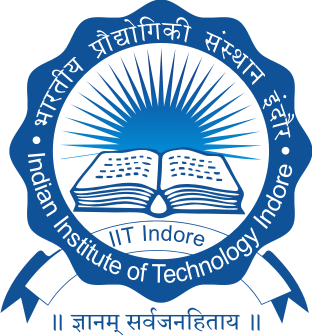Guidelines
Recognizing Sexual Harassment
Sexual harassment of women is a violation of the fundamental rights of a
woman to work to equality under article 14 and 15 in a safe environment.
Sexual Harassment of Women at Workplace (Prevention, Prohibition and
Redressal) Act, 2013 guidelines define sexual harassment as:
Physical contact and advances
Demand or request for sexual favours
Making sexually coloured remarks
Display of pornography
Any other unwelcome physical, verbal or non-verbal conduct of a sexual nature
Therefore, sexual harassment includes any attempt to intimidate/influence by linking professional
advancement with sexual favors, or creating a hostile work environment through sexually coloured
conversations, letters, telephone calls and text messages, or making demeaning comments about women's
role in society. In short, all kinds of offensive, hostile, intimidating, humiliating and exploitative
language, gestures and conduct are the sexual harassment.
Often such behaviour or goes unpunished mostly because of hesitation on the part of women to report
such behaviour out of a sense of shame or fear or both. It is important for women to protest against any
behaviour that they feel is unwanted and unacceptable. The Internal complaints committee at IIT Indore
has been set up with the aim of providing women a platform to complain about any unwelcome
behaviour.
Abuse of Position of Power
Power of position may be abused by perpetrators of sexual harassment through implied or explicit
promise of preferential treatment; implied or explicit threat of detrimental treatment; creating an offensive
work environment; All these are criminal offenses. Apart from the grave criminal offense of Rape,
following acts are also punishable under law:
Voyeurism: Watching or capturing an image of a woman engaged in a private act.
Stalking: Following a woman, contacting (or attempting to contact) a woman despite a clear indication of
disinterest by the woman; monitoring the use of the internet by a woman. Therefore, any of these acts
may lead to academic termination or suspension from service.
Pervasive Myths about Acts of Sexual Harassment and Violence
Certain dresses provoke sexual harassment and violence, i.e. provocatively dressed women ask to be
sexually harassed and have no right to complain; or decently dressed women are not sexually harassed.
Any act that happens with a woman at a place where she has gone willingly must be consensual.
Women who object to sexual harassment are over-reacting.
Any act under the influence of alcohol or drugs does not amount to sexual harassment or violence.
It is sexual harassment only if it is committed by stranger(s).
If the act is not reported immediately, then it did not happen or was consensual.
If you are being Harassed, what to do and not to do:
Do not feel ashamed and embarrassed. Firmly tell the harasser that you find his behavior
inappropriate/offensive.
Do not blame yourself. Come forward and complain.
Do not ignore the harassment in the hope that it will stop on its own.
Talk to somebody you trust about the harassment and take his/her advice of lodging a complaint.
Keep a record of all incidents of sexual harassment with dates, times, places, names of harasser(s)
and witnesses of the incidents related to the harassment.
If after warning the abuser does not stop harassing, the victim can lodge a complaint through e-
mail or by telephone call to any members of ICC. The identity of complainant will be kept
confidential.
Only victim or her heir can file complaint. All woman employees (faculty and staff including
contractual, casual and temporary), female students, and other women residing in IIT Indore
Campus or visiting the Campus can approach ICC.
As mandated by The Government of India, Ministry of Law and Justice, The Sexual harassment of
women at work place (Prevention, Prohibition and Redressal) Act 2013, published in Gazette of India
Extraordinary Part II, Section I, No. 18, New Delhi dated 23 April 2013, IIT Indore has constituted
an INTERNAL COMPLAINTS COMMITTEE which can be approached for filling complaints. Please
also refer to the notification of Ministry of Women and Child Development published in The Gazette of
India Extraordinary Part II, Section 3, Subsection ii, No. 2733, New Delhi, dated 09 December 2013. The
constitution of The Internal Complaints Committee is available on the Institute website (Click Here)
The Chairperson of the committee is designated as Presiding Officer.
Call/email/meet/file a paper complaint to the Presiding Officer, The Internal Complaints Committee.
The Current Presiding Officer is Prof. (Mrs.) Pritee Sharma, Professor, School of Humanities and Social Sciences, IIT Indore, Simrol, Khandwaroad, Indore-453552
Phone: +91-731-6603247
E-mail: icc@iiti.ac.in
Emergency contact: Security (SIS) control room: +91-731-6603117
What action can be taken against the offender
After it has been proven that the offender has indulged in sexual harassment in the work place, an appropriate punitive action would be taken against him irrespective of his status in the Institute (staff, faculty, and student). Where such conduct amounts to a specific offence under the Indian Penal Code or under any other law, a complaint will be made to the appropriate action in accordance with the law can be taken. Initially the compliant will be directed to Internal Complaint Committee (ICC) for its recommendation to the Director, who will direct the recommendations to the Dean of Student Welfare for students, Dy. Director for non-teaching staffs and to Board of Governors (BOG) for Class A officers/faculty members for necessary action.
